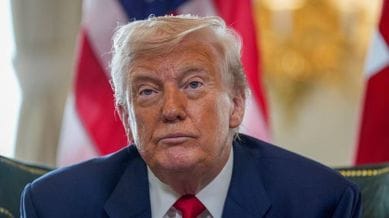Subtitle:
With global eyes on U.S. policy, final trade announcements could reshape international economic dynamics
News Report:
In a move that could have far-reaching implications on global trade, former U.S. President Donald Trump is expected to finalize decisions on several high-stakes trade agreements by August 1, according to the U.S. Commerce Secretary. The announcement comes amid increasing pressure on the U.S. administration to redefine its trade policies ahead of a potentially pivotal election cycle.
The Commerce Secretary stated during a press briefing that “discussions are ongoing with multiple international partners, and President Trump is only days away from making final calls on a number of critical trade pacts.” Although exact details remain under wraps, it is understood that these decisions could affect trade with major economies such as China, Canada, Mexico, the European Union, and several Asian partners.
Trump has long advocated for trade deals that are “fair and reciprocal,” and has previously criticized what he calls “one-sided agreements” that disadvantage American businesses and workers. In recent weeks, senior officials have held closed-door meetings with foreign delegations to renegotiate existing terms, particularly around tariffs, agricultural exports, digital trade, and intellectual property protections.
Market analysts say the timing is critical. With ongoing geopolitical tensions, supply chain disruptions, and rising inflation pressures, global markets are looking for stability and predictability. “A bold move from the U.S. on trade could cause ripple effects across sectors — from manufacturing and tech to energy and agriculture,” said an international trade expert.
Investors are closely watching the developments, as any new tariffs or trade barriers could shift supply chain strategies and alter pricing for imported goods. On the flip side, improved trade terms could boost U.S. exports and provide relief to domestic industries struggling with global competition.
International leaders are also paying attention. Some have signaled openness to negotiations, while others have expressed concern over the possibility of unilateral tariff hikes. Trump’s past use of tariffs as leverage — notably during his administration’s trade war with China — has left some foreign governments cautious but willing to engage.
While many await specifics, one thing is clear: the upcoming trade decisions have the potential to redefine the global economic landscape. As the August 1 deadline approaches, both allies and competitors are bracing for the impact of what could be one of the most consequential shifts in U.S. trade policy in recent years.

